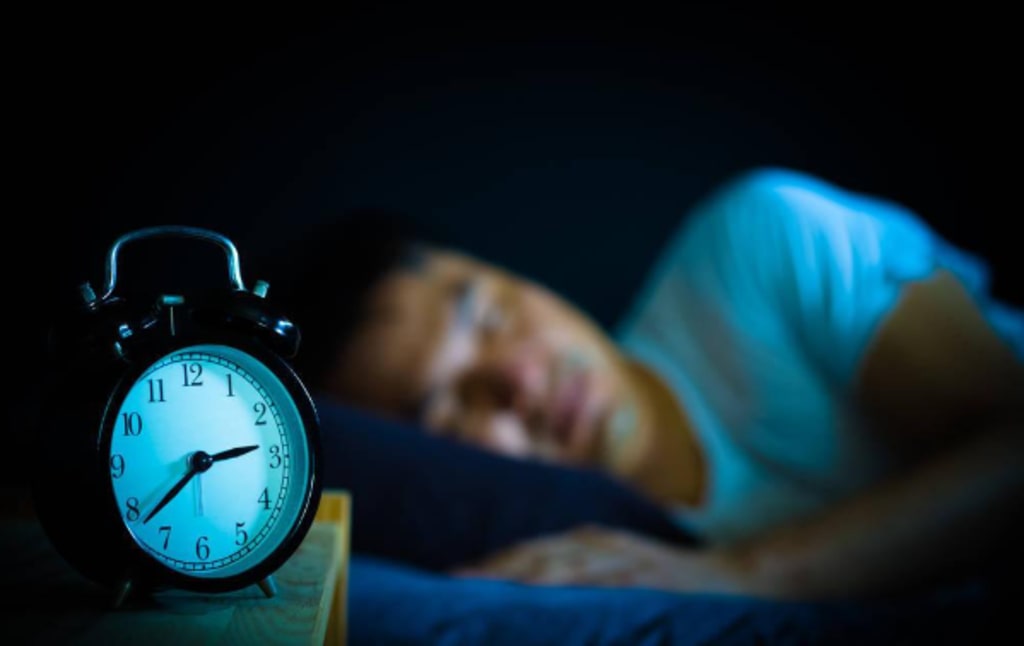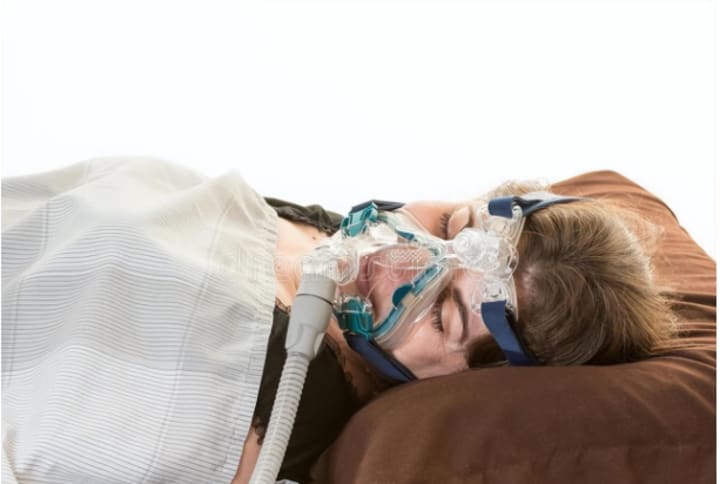
I believe that many friends have had such experiences, snoring sound is particularly loud when sleeping, always snoring, and even affect the sleep of people around, or will occur in the sleep shortness of breath, the next day after waking up, although feeling a big sleep, but always still feel sleepy, if such problems often occur, you should be alert to the "sleep apnea If this problem occurs frequently, you should be alert to the possibility of "sleep apnea".
Sleep apnea is a disease that may be caused by a variety of reasons, this disease will lead to partial or total airway obstruction during sleep, thus affecting normal breathing during sleep, the duration of this pause will generally be more than 10 seconds, and the long time can even reach more than 2 minutes, is a disease problem worthy of attention, should be improved promptly.

Sleep apnea for the health of the body is obvious, sleep when the airway can not continue to keep open, the body inhaled oxygen will be greatly reduced, and the oxygen saturation in the blood decreased, which led to the lack of oxygen supply to various tissues and organs of the body, which may lead to a variety of health problems.
Many of you know that patients with sleep apnea problems have a higher risk of nocturnal hypertension, as well as cardiovascular and cerebrovascular events. This is because apnea occurs during nighttime sleep, resulting in a lack of oxygen to the body, which can increase the burden on the lungs and heart. Breath-holding awakenings during apnea, as well as hypoxemia, can cause sympathetic hyperexcitation, which in turn leads to vasoconstriction, raising blood pressure, and the heart's heart rate will further increase to meet the body's blood supply, and the superposition of these two effects will make it easier to cause an increase in blood pressure, bringing about cardiovascular health risks at night.
But the dangers of sleep apnea go beyond high blood pressure and increased cardiovascular risk. Several new studies presented at the recent European Respiratory Society 2022 International Congress also suggest a strong relationship between sleep apnea and increased risk of cancer, dementia, and blood clots.
Sleep apnea is associated with a higher risk of cancer, dementia, blood clots
In the first study, researchers from Sweden counted data on nearly 63,000 patients in Sweden with obstructive sleep apnea, primarily for the five years before they underwent sleep apnea treatment initiation, spanning from 2010 to 2018, who are now receiving related treatment.
The researchers compared 2,000 of the participants who had cancer and also had sleep apnea problems with 2,000 patients who did not have cancer and also had sleep apnea problems and found that apnea tended to be more severe in the cancer patient group, while blood oxygen levels were lower in patients with lung cancer, prostate cancer, and melanoma.
and colleagues studied data from nearly 63,000 patients in Sweden about five years before they began treatment for obstructive sleep apnea. between 2010 and 2018, patients were treated with continuous positive airway pressure ventilation, which keeps their airways open during sleep. The researchers linked this information to data from the Swedish National Cancer Registry and social and economic data from Statistics Sweden.
The researchers noted that the results of this study emphasize the need to consider untreated sleep apnea, as a risk factor for cancer, and that patients with sleep apnea should be treated with the possibility of elevated cancer risk in mind. However, the researchers also noted that the current findings do not support the need to screen all sleep apnea patients for cancer.
In another study presented at the conference, Swiss researchers studied 350 participants over the age of 65 and administered sleep tests to participants between 2003 and 2008, followed by follow-up visits every five years to assess cognitive function and test various aspects of brain function, processing speed, executive function, verbal memory, and other abilities.
The research team found that obstructive sleep apnea was associated with greater decreases in brain function, processing speed, executive function, and verbal memory, with low oxygen levels during sleep being the largest influencing factor. This study reveals that nighttime hypoxia is associated with causing a cognitive decline in older adults and that sleep apnea left uncontrolled for long periods may increase the risk of developing dementia in older adults.

The third study on the dangers of sleep apnea was conducted in France, where researchers studied a total of 7,355 sleep apnea patients with a follow-up period of more than six years, and 104 of these participants developed venous thrombosis. Those with oxygen saturation levels below 90 percent, or apnea for more than 6 percent of their sleep, were two times more likely to develop blood clots.
The researchers noted that patients with severe obstructive sleep apnea were more likely to develop dangerous venous thrombosis in the lower legs, thighs, and pelvis, which can lead to the risk of cardiopulmonary infarction and stroke.
The three studies mentioned above further prove that obstructive sleep apnea, not only affects a person's survival and quality of life but also brings the risk of developing some major diseases, a correlation that should be more deeply understood and promptly corrected and treated.
Introduction to the identification, diagnosis, and conditioning treatment of sleep apnea
Having said that, many of you may have doubts about whether there is sleep apnea or not. For the problem of sleep apnea, how should it be diagnosed and identified? Let's put aside those medical test data, we self-judge whether there is a problem with sleep apnea, which may be the first from the following aspects of self-assessment.
Snoring: Do you snore loudly in your sleep (louder than normal speech or audible through a closed door)?
Lethargy: Do you often feel tired, sluggish, or drowsy during the day?
Witnessed apnea: Have you been seen to stop breathing while sleeping?
Blood pressure: Have you ever had high blood pressure or are you being treated for high blood pressure?
Obesity: BMI >35kg/m2?
Age: >50 years old?
Neck circumference: >40cm?
Gender: Are you male?
For the above 8 options, answer yes and count one point, answer no count zero points, if the score is greater than 3 points belonging to sleep apnea high risk, <3 points belong to low risk, if higher than 3 points, friends can go to the hospital again for formal examination, such as the whole night polysomnography, night segmentation sleep monitoring, etc., which can help to diagnose the problem of sleep apnea.
After detection, the number of sleep apnea at night between 5 and 15 times, oxygen saturation above 85%, belongs to mild, pause more than 15 times less than 30 times, oxygen saturation in 80% to 85%, belongs to moderate, and more than 30 times, oxygen saturation below 80%, belongs to severe, combined with different risk situations, should be timely control treatment.
The control of sleep apnea can be divided into risk factor control, symptomatic treatment, and treatment of complications, etc. Obesity, alcoholism, smoking, etc. are important life factors that lead to sleep apnea. etc. Those that can be improved by treatment or surgery can also be improved by combining the situation with treatment, and in combination with the disease, non-invasive positive airway pressure ventilation can also be performed on moderately severe patients to improve the adverse health effects caused by sleep apnea.






Comments
There are no comments for this story
Be the first to respond and start the conversation.